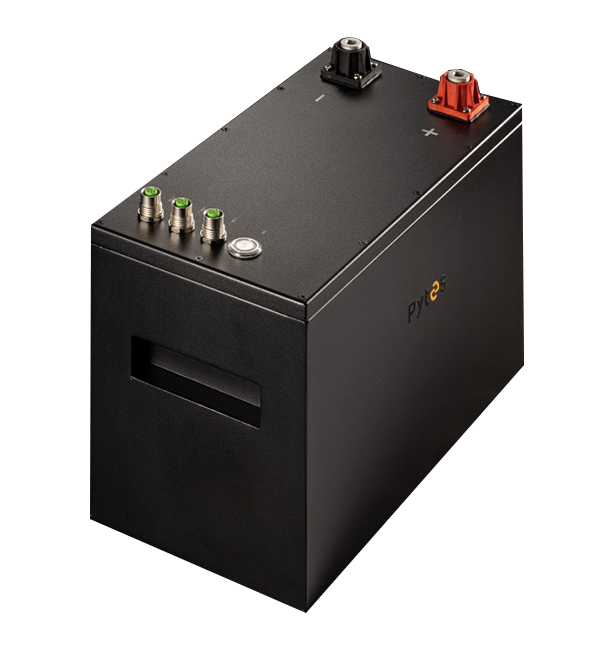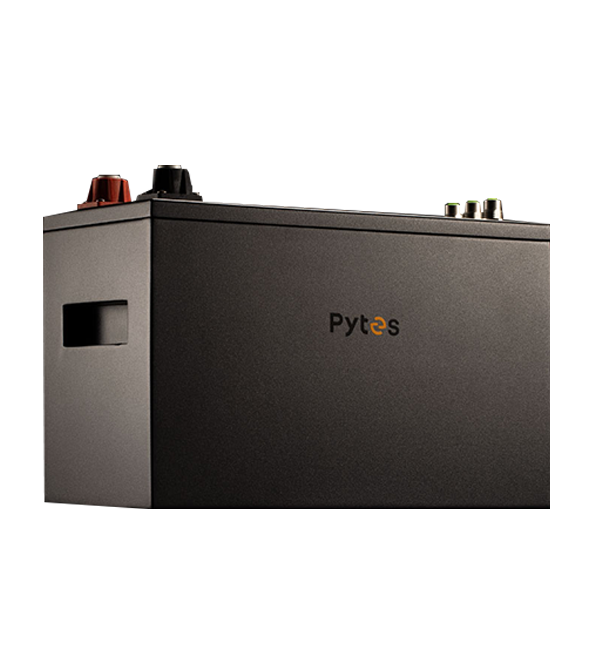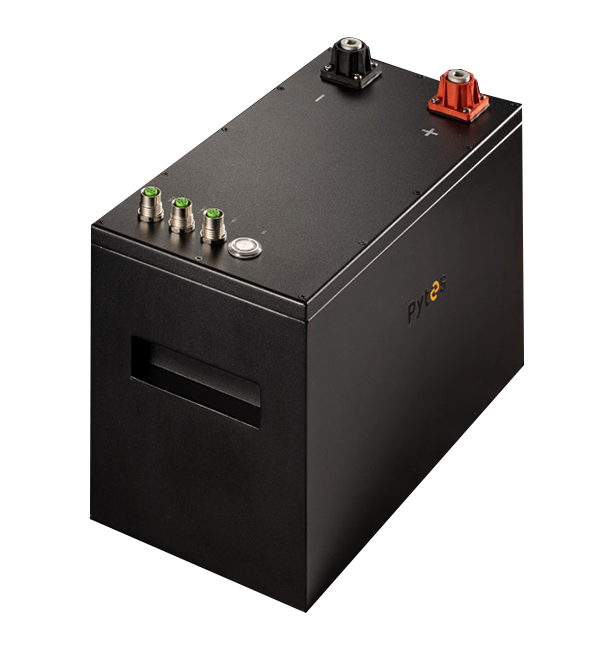Marine batteries are the lifeblood of ships and marine equipment, providing the essential power needed to navigate accurately and reliably across vast expanses of water. These specialized batteries are able to withstand harsh marine environments and provide reliable energy to a variety of shipboard systems. Understanding the intricacies of marine batteries is critical for any mariner or boat owner who relies on these power sources to propel their vessel through rough waters.
What is a Deep Cycle Battery?
A deep cycle battery is a type of battery that is specifically designed to provide a consistent and sustained flow of power over an extended period. Unlike other batteries, such as car batteries, which are primarily used for starting engines, deep cycle batteries are built to handle repeated charging and discharging cycles. They are commonly used in applications that require long-lasting power, such as electric vehicles, renewable energy systems, marine vessels, golf carts, and off-grid power solutions. Deep cycle batteries are constructed with thicker and more durable plates, allowing them to withstand deep discharges without significant performance degradation. This makes them well-suited for providing reliable and continuous power in various demanding applications.

What Are The Types of Deep Cycle Batteries?
At present, deep cycle batteries include: lithium titanate battery, lithium iron phosphate battery, and ternary lithium battery. Although lithium titanate batteries have a long life, they are expensive, bulky, and not widely used. The most widely used deep cycle batteries are lithium iron phosphate batteries (it is recommended that you refer to Pytes E-Box-48100R or Pytes New LFP battery for Home Battery System-V5°) and ternary lithium batteries.
Which One Has Longer Life, Ternary Lithium or Lithium Iron Phosphate?
The ternary lithium battery material battery has been cycled 3,900 times, with a remaining capacity of 66%. The lithium iron phosphate battery pack has been cycled 5,000 times, with a remaining capacity of 84%. The cycle life is longer than the ternary material battery and the lithium iron phosphate battery. Taking the remaining capacity/initial capacity = 80% as the test end point, the current 1C cycle life of the ternary material battery laboratory is about 2,500 times, and the 1C cycle life of the lithium iron phosphate battery laboratory is more than 3,500 times, and some exceed 5,000 times. Therefore, the actual service life of lithium iron phosphate batteries is longer than that of ternary lithium batteries.
Marine Backup Batteries:Pytes Deep Cycle LiFePO4 Batteries-E-BOX-12100
As a leading lithium battery solution provider, Pytes has been committed to providing residential energy storage system solutions to customers around the world for more than a decade. To address the demanding requirements of marine applications, we have developed a reliable solution_E-Box-12100. E-Box-12100 is a deep-cycle lithium iron phosphate battery with built-in intelligent self-heating, long life and advanced battery management system (BMS), which can fully meet the needs of marine backup power.
Features of E-Box-12100 Deep Cycle LiFePO4 Batteries
1.Effortless Charging in Cold Environments:
One of the standout features of Pytes's Deep Cycle LiFePO4 Batteries is the built-in intelligent self-heating capability. This innovative technology ensures that the batteries can be charged effortlessly even in cold environments. By maintaining an optimal temperature range, the batteries are able to deliver consistent performance and extend their lifespan, making them ideal for marine applications where temperature fluctuations are common.
2.Long Lifespan and High Efficiency:
The E-Box-12100 Deep Cycle LiFePO4 Batteries boast a 12V nominal voltage, which allows for more than 6000 life cycles. This exceptional lifespan is a result of the low heat generation and high efficiency during high power transmission. With Pytes's batteries, marine enthusiasts can enjoy extended periods of reliable power without worrying about frequent replacements or loss of performance.

Features of E-Box-12100 Deep Cycle LiFePO4 Batteries
1.Modular Design for Scalability:
Pytes understands that marine power requirements can vary greatly depending on the vessel's size and usage. To address this, the E-Box-12100 Deep Cycle LiFePO4 Batteries feature a modular design that easily scales to meet a range of configurations. This flexibility allows boat owners to customize their power systems according to their specific needs, ensuring optimal performance and improved charging efficiency in the long term.
2.Comprehensive Protection and Real-Time Monitoring:
Pytes Deep Cycle LiFePO4 Batteries are equipped with a state-of-the-art battery management system (BMS) that provides comprehensive protection features and real-time monitoring. The BMS ensures that the batteries are operating within safe parameters, protecting against overcharging, over-discharging, and short circuits. Additionally, the real-time monitoring feature allows users to keep track of the battery's performance and health, providing peace of mind during marine adventures.
3.Auto-Balancing for Enhanced Performance:
To further enhance the longevity and performance of the batteries, Pytes's Deep Cycle LiFePO4 Batteries incorporate an auto-balancing feature. This feature ensures that each individual cell within the battery pack is charged and discharged evenly, preventing any imbalances that could lead to reduced capacity or premature failure. The auto-balancing feature contributes to the overall efficiency and reliability of the batteries, making them an excellent choice for marine backup power applications.
Factors to Consider When Choosing A Marine Battery
Battery Capacity: Battery capacity is the amount of energy a battery can store, measured in ampere hours (Ah). This unit indicates how long the battery can provide positive energy before needing to be recharged. When it comes to the power requirements of the boat systems supported by the battery, it is important to keep the battery capacity in mind.
Reserve Potential: Reserve capacity is the amount of time the battery can provide the minimum voltage required to perform important accessories in the event of alternator failure. It is usually measured in minutes and is an important consideration for marine batteries, especially in an emergency.
Cold Cranking Amps (CCA): CCA is a rating that indicates the battery's ability to start the engine at low temperatures. This value is particularly important for marine batteries used in cold climates, as it determines the performance of the battery in cold weather conditions, and the smart self-heating feature of the Pytes E-Box-12100 battery ensures that it can easily stay charged in cold environments .
Capacity and Power Rating: When selecting a marine battery, its capacity and power rating are one of the first considerations. Capacity is the amount of energy a battery can store, usually measured in ampere hours (Ah). Higher capacity means more energy can be stored to meet the ship's power needs, allowing it to run longer without recharging. Power rating, usually measured in volts (V), determines how much power a battery can provide at any given time. The battery's capacity and power rating must match the boat's energy needs to ensure smooth, uninterrupted operation on the water.
Long-term cost-effectiveness: While upfront costs play an important role when selecting a lithium-ion marine battery, long-term cost-effectiveness must also be considered. Cheaper options may save you money initially, but may result in frequent replacement due to shorter lifespan or poor performance in harsh conditions.

Conclusion
All in all, when it comes to choosing a marine backup battery, we firmly believe that the Pytes E-BOX-12100 battery is a smart choice. Not only can the battery withstand harsh marine environments, it can also provide reliable energy for a variety of ship systems. They have excellent cycle life and high energy density to provide long-lasting power support. In addition, Pytes deep cycle LiFePO4 batteries have lower self-discharge rates and faster charging times, making them the first choice for boat owners and crews. Whether on long voyages or in emergencies, these batteries ensure vessel reliability and safety.

